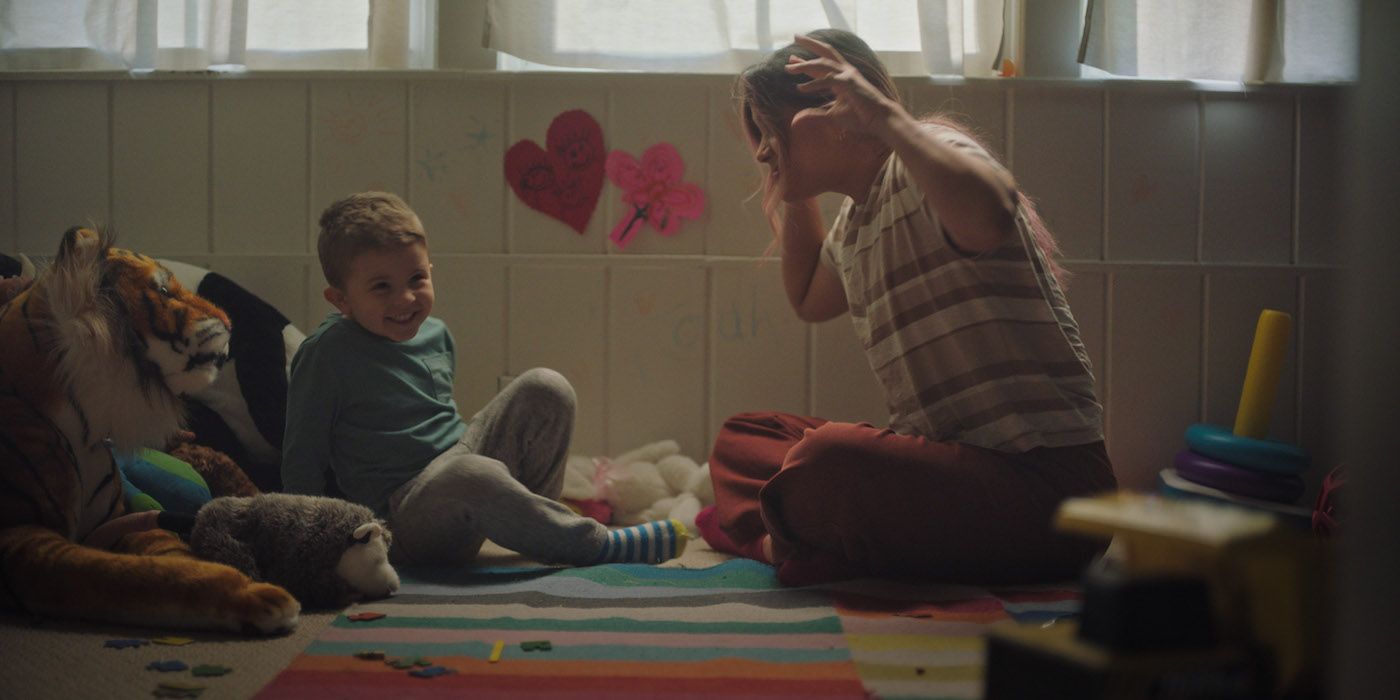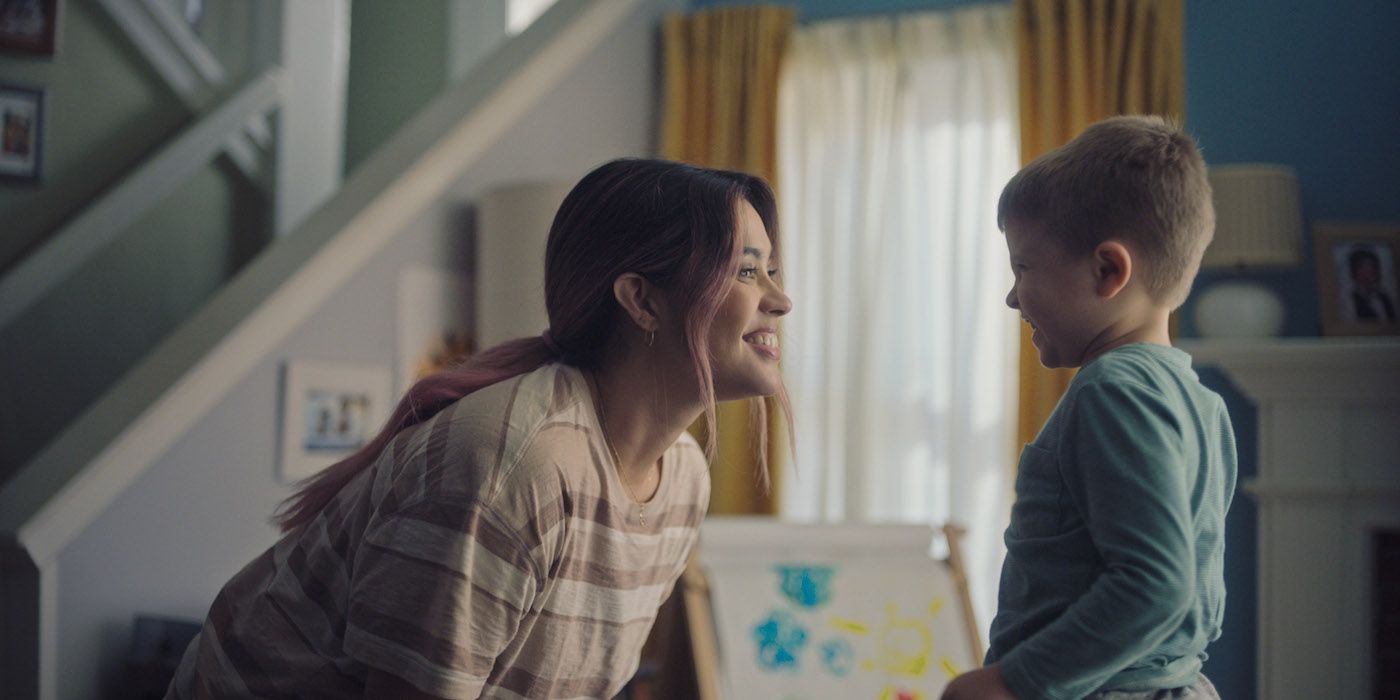Audiences looking for a series of provocative short films that dissect specific corners of bittersweet Americana need look no further than Launchpad on Disney+. The six short films each take on unique stories with a shared theme of "Discovery." In this case, that sense of discovery is conveyed through the point of view of a child.
Let's Be Tigers, directed by Stefanie Abel Horowitz, follows a babysitter and her ward, a young boy who does not understand that his friend is dealing with the immeasurable grief of her mother's death. There's no clear-cut right way to express sadness, to deal with grief, but Let's Be Tigers shows that it's okay to not know what to do, while showing how things like responsibility and personal interaction can go a long way towards bringing us back from the brink, so to speak.
While promoting the release of Let's Be Tigers, Stefanie Abel Horowitz spoke to Screen Rant about her work on the film, and her approach to telling stories. a self-described guarded person who is "good at listening, but not very good at sharing," Nevertheless, her heart is clearly on display in Let's Be Tigers, a subtle, tragic, and triumphant story about how it's okay to not be okay.
Let's Be Tigers is available now on Disney+.

Hello there!
Hi, nice to meet you!
You too, especially since... I mean, it would be nice to meet you anyway, but it helps that I saw your short film yesterday.
Oh, good!
And... Well, first, give me a little bit of a timeline. What was the kernel of this, and when did it start?
When I started writing the film, my Zaide, which was my grandfather, was about to turn 100. My parents were going to turn 70, and my nephew was going to turn four. I was thinking about the passing of the baton of life, and that I wasn't the kid anymore, and I had actually been a babysitter in my early 20s. I babysat this wonderful little four-year-old who was so loving, but one day he was trying to shoot me dead with his little finger gun, and I said, "Do you know what that means?" And he said, "No." And I said, "Look, if I was dead, I wouldn't get to come here anymore. I wouldn't see you anymore." And he got really sad, as you do, as we would all feel, you know? So I just started thinking about how the big tragedy of everyone's life is that we're going to die one day, and so will everybody around us, and we'll have to go through this sadness and this grief, over and over again. So how do we talk about that in our culture? How do we share that really personally? And how do we talk to children about that? In my own life, I'm very scared to share sad things. I'm the child of a therapist and I'm good at listening, but not very good at sharing. So I think it really is a film about remembering that the act of bravery creates community and reminds you that you're not alone, and reminds other people that they're not alone in their sadness and difficult times.
I think there's probably wrong ways to express grief, but I don't know if there's a "right" way.
That's so true.
I think there's going to an emotional reckoning that we're about to see of... Just speaking for myself, I had so much personal and professional loss in the past year or so, and I lost my father, and this film really spoke to me on that level.
I'm so sorry to hear that.
In some ways, I feel like I haven't processed it as well as I would have in a different time. I think this movie makes it... Lets me know that it's okay to not do things the way that I'd be expected to. I don't know, is that something that kind of went through your mind when you were writing it?
I think, personally, I don't know how to share. I'm so scared of sharing. If that's what comes through for other people, that maybe we can be bad at it and that's okay, I think that's a beautiful thing. And I'll also say that actually, on set, the week that we were shooting, we had three deaths occur... One of which was my grandfather... Not deaths within the set, but deaths of people who were working, their friends and family. It was kind of a gorgeous thing to all be there together, making this film, talking about these hard things and experiencing it together. To be able to talk about it. For Dash to come to set one day and say, "My mommy is a little sad today because her friend died." And then we went upstairs and had a conversation about death. I hope things like that come out of this film and folks who watch it. I'm really appreciative that it meant something to you.

Yes, absolutely. For a split-second, I was wondering if you were just a horribly unsafe director and you just killed all these people on set... But that's not... (Laughs)
No, not at all! I was giving people flowers and things!
Last question, very quickly. You got such a tremendous performance out of that young child actor. The oldest line in the book is, "Don't work with kids!" What is your thought on that?
Work with kids! They're wonderful! I think the film is about how much joy children bring to our lives, and they can really remind you what's fun about living. And I think we absolutely got to experience that. It's very fun to go to work every day and have a little five-year-old want to play! And literally play hide-and-seek when he gets upstairs, and play tag, and anything. I loved it. I had the most incredible experience working with Dash.
from ScreenRant - Feed https://ift.tt/2SKsVxn

0 Comments